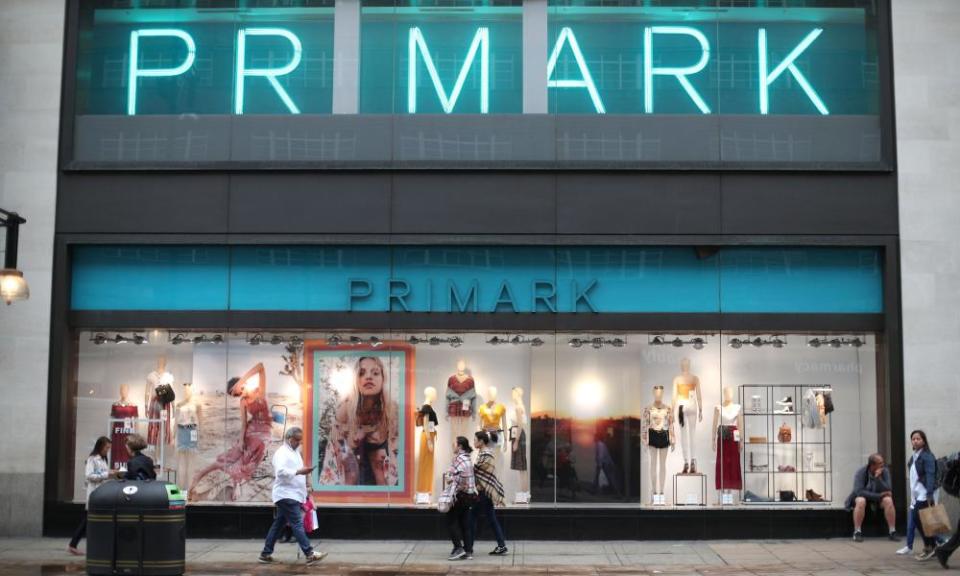Primark to cut 400 managers to offset rising costs

Primark is to axe 400 jobs across its UK business as the fast fashion retailer cuts back its store management roles in response to rising cost pressures, despite a significant bounceback in trading in recent months.
Primark, which operates 191 stores in the UK and more than 400 in total internationally, said it was creating a new management level role as part of the reorganisation but overall expected the changes to leave it with about 400 fewer retail managers in the UK.
The company added that although supply chain pressures had now eased it still expected that longer shipping times would “continue for some time”.
Primark said that while sales at its UK stores in the 16 weeks to 8 January had been “well ahead” of last year, despite an impact from the spread of Omicron, they remained 10% below pre-pandemic levels.
“The changes we are proposing will deliver a simplified and more consistent management structure across all of our stores,” said Kari Rodgers, the UK retail director at Primark. “[It will] provide more opportunities for career progression and offer greater flexibility, all of which are designed to help us provide the best possible experience for both our customers and colleagues. We are now focused on supporting our colleagues who are affected by these proposed changes and will be going through the consultation process.”
The cuts come as Primark reported a Christmas boom, with sales at £2.6bn in the 16 weeks to 8 January, a 36% increase over the previous year when the retailer saw widespread closures of stores in the UK and Europe because of the pandemic.
The company said that while sales at stores in retail parks had surpassed pre-pandemic levels, sites in city centres continued to show a lag in the rate of recovery.
Overall, Primark said sales were down 5% compared with the same period in 2019, pre-Covid, helped by the opening of 25 stores since the start of the pandemic, and 11% on a like-for-like basis stripping out the impact of the expansion. Looking ahead, Primark expects sales up to April to be “significantly better” than last year.
Primark’s business in the US, where it plans to open 100 stores, continues to be a “standout” performer with sales up 4% on pre-Covid levels on a like-for-like basis and 37% compared with total levels two years ago.
“If the shackles continue to loosen on the vital Primark arm, the group should be poised for stronger prospects and the market consensus of the shares as a strong buy echoes this possibility,” said Richard Hunter, the head of markets at Interactive Investor.
Primark’s parent company, Associated British Foods (ABF), which owns brands including the hot drinks firms Ovaltine and Twinings as well as a sugar business, said that margins had been squeezed at its other businesses as inflation pushed costs higher, with price rises on its products taking time to feed through to the bottom line.
“All businesses have experienced inflationary pressures in raw materials, commodities, supply chain and energy,” the company said. “Margins in grocery and ingredients were impacted where sales price actions have lagged the effects of input cost inflation.
“All businesses have been focused on mitigating the effects of significant cost input inflation, particularly in energy costs.”
Overall, ABF reported a 16% rise in total group revenues to £5.5bn.

 Yahoo Finance
Yahoo Finance 